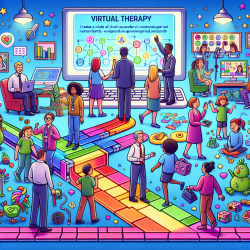Special education mediation is a valuable tool for resolving disputes between parents and school staff regarding special education services. In Colorado, the Colorado Department of Education (CDE) provides resources and guidance to help parents, school districts, and other interested parties navigate this process. Here's what you need to know about special education mediation in Colorado.
What is Special Education Mediation?
Special education mediation is a voluntary dispute resolution process where parents and school staff work together with the help of a mediator to resolve disagreements about special education. This process encourages collaboration and focuses on the best interests of the student.
Benefits of Mediation
- Focuses on the student
- Gives parties control of the outcome and the ability to creatively resolve their dispute
- Provides the least adversarial process for resolving a dispute
- Available free of cost to the parties and is the quickest dispute resolution option
Who Can Request Mediation?
The parent of a student who may be eligible for or is receiving special education services or a Special Education Director can request mediation. To request mediation, contact the CDE Mediation Coordinator by phone (720-237-1610) or complete a mediation request form.
When Can Mediation Be Requested?
Mediation can be requested anytime there is a dispute about special education for a student who may be eligible for or is receiving special education services. The CDE encourages parties to consider mediation as soon as a disagreement arises. Mediation cannot be used to deny or delay a parent's right to a due process hearing.
Concerns Discussed in Mediation
Mediation can address disagreements concerning:
- Identification, evaluation, and eligibility
- Development and implementation of the IEP or IFSP
- Placement and least restrictive environment (LRE)
- Discipline and other matters protected by IDEA or ECEA
What Happens After Requesting Mediation?
Once a mediation request is received, the Mediation Coordinator contacts the other party to ask if they agree to participate. Both parties must agree for mediation to proceed. If the other party does not agree, the requesting party will be notified, and other dispute resolution options remain available.
Who Decides the Outcome?
The parties involved decide the outcome of the mediation based on the options discussed during the session.
Cost of Mediation
Mediation is free. The CDE provides a mediator at no cost, but parties are responsible for any attorney fees if they choose to have legal representation.
Scheduling Mediation
Once both parties agree to mediate, a mediator will contact them to schedule a date. Mediation typically occurs within 30 calendar days of the request. It can be held in a neutral location or online through platforms like Zoom.
Need an Interpreter?
If an interpreter is needed, contact the CDE Mediation Coordinator at 720-237-1610. An interpreter will be provided at no cost.
Who Are the Mediators?
Mediators are independent contractors assigned on a rotational basis. They are trained in effective mediation techniques and knowledgeable about special education law. Mediators remain impartial and do not offer legal advice or share information disclosed during mediation.
How Can a Mediator Help?
A mediator can assist by:
- Asking questions
- Facilitating open communication
- Creating a safe and confidential environment
- Encouraging respect for all viewpoints
- Clarifying points of disagreement
- Identifying options
- Assisting with writing agreements
Who Can Attend Mediation?
Attendees can include:
- Parents of the student
- The Special Education Director or their designee
- The student, if appropriate
- Other knowledgeable persons
Generally, smaller groups lead to more effective communication. The district should consider bringing an attorney only if the parents do.
Mediation Process
The mediation process includes:
- Scheduling: Mediator contacts parties within 2 business days. Plan for a full day of mediation.
- Agreement to Mediate: Mediator explains the process and presents an Agreement to Mediate for parties to sign.
- Session: Includes introduction, opening discussion, clarifying information, exploring options, negotiations, and agreement.
- Impasse: If no agreement is reached, other dispute resolution options are available.
- Evaluation: An evaluation is emailed to parties post-session to improve the process.
Settlement Agreement Terms
Typically include:
- Statements of resolution and responsibilities
- Timelines for implementation
- Signatures of parents and district representatives
Post-Agreement Actions
Terms are implemented, and the IEP is revised if necessary. All information learned during mediation is confidential. The mediator destroys all records, and nothing about the content is shared with third parties.
Appeal Process
A written settlement agreement is legally binding. If terms are not met, enforcement can be sought in state or federal court. Unresolved issues can be addressed through other dispute resolution options.
For more information, please follow this link.










